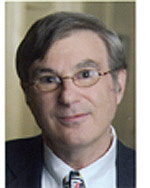Distant Dreams and Hard Truths: Zionist and Other Writings of Zelman Kagarlitsky by Daniel Harbour, editor, The Lansing Press; ISBN 978-0-9567661-0-6 ©2010, p. 218, including notes and index, cover price unlisted
By Fred Reiss, Ed.D.

WINCHESTER, California — Who is Zalman Kagarlitsky? Thanks to Daniel Harbour, the great-grandson of Kagarlitsky, the work of an articulate and perceptive journalist, who wrote in Russian, Hebrew, and Yiddish and who travelled through Europe, Asia, and the Middle East, during the early nineteenth century, has been brought to light.
History records that the Seventh Zionist Congress, held in Basel, Switzerland, in late July through early August, 1905, began with a eulogy to the late Theodore Herzl, who passed away the year before, between the Sixth and Seventh Congresses. Following the tribute to Herzl, the convention undertook the Palestine Question—should the Jews accept establishing a homeland outside of what today is called Israel? Lost are details of the meetings and the minutiae that lead to ultimate outcomes. Kagarlitsky, a passionate Zionist, tells us in a draft speech that he attended a meeting in Odessa as a precursor to the Basal meeting. “How I was unpleasantly surprised on my arrival in Odessa to learn from my respected colleagues that the Odessan Palestinians [Zionists from Odessa] had assumed the running of the order of the business at the congress: there is no special interest in the exchange of ideas between delegates, no project is proposed for improvement of the Palestinian cause, but rather, they concern themselves with general, material aspects of the cause.”
In contrast, he lauds a speaker, Dr. Hillel Joffe, Chairman of the Hovevei Zion [“Lovers of Zion,” the forerunner of Modern Zionism] Executive Committee, at the Basel meeting by saying, “Besides this, he is free of the least arrogance and listens with fullest attention to everyone’s smallest remark and rightfully considers himself one of the most essential links between the Russian Hovevei Zion, Palestinian colonists, Baron Rothschild, and all international Hovevei Zion.”
Kagarlitsky showed himself to be a humanitarian as well as a Zionist. In a 1910 article published in the Hed Ha-Zeman (Echo of the Times) newspaper in Vilna, Kagarlitsky, reporting from Alexandria, Egypt, bemoans a story read in a prior Hed Ha-Zeman issue, which told the tragedy of a merchant family from Vitebsk (a city in Belarus, near the border with Russia.) The story reported that “his daughter was sold into prostitution in an Egyptian harem and a ransom of thirty thousand roubles was extracted for her rescue.” As an eyewitness to the events, Kagarlitsky recounts the truth, a different, more interesting and perceptive tale of a young Jewess seeking her independence in Egypt, one involving no abduction and no ransom. “I have seen fit to publicise all these details in Hed Ha-Zeman,” he wrote, “in order to remove any stigma from this well reputed family of Israel.”
Kagarlitsky, roaming through many countries over large distances, became an eyewitness to vastly different politics and customs, a traveler through newly formed cities, which one day would become population and cultural centers of the State of Israel, and a spectator watching the interaction between Jewish and Arab communities in the Pre-World War I era. The articles and speeches by Kagarlitsky, which span three decades, provide fascinating insights into the day-to-life of Arab and Jew on three continents. Reading Distant Dreams and Hard Truths: Zionist and Other Writings of Zelman Kagarlitsky is like discovering a treasure trove of newspaper clippings hidden away long ago, waiting to be rediscovered, reread, and enjoyed once more.
*
Reiss is a retired public and Hebrew school teacher and administrator. He is the author of The Standard Guide to the Jewish and Civil Calendars; Ancient Secrets of Creation: Sepher Yetzira, the Book that Started Kabbalah, Revealed; and Reclaiming the Messiah. He may be reached at fred.reiss@sdjewishworld.com